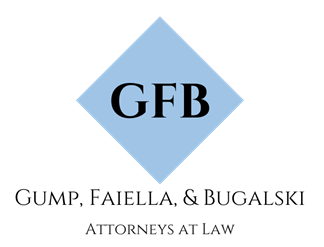CLIENT LOGIN
×Insurance Bad Faith
When an insurance company sells a policy of liability insurance, it is promising to protect its customer from financial liability, up to the policy limits. What most customers don’t know is that the insurance company’s policy also requires the customer to surrender control of the defense and any settlement to the insurer. In other words, your insurance company is in the driver’s seat. The company decides what lawyer they hire to defend you, whether or not the case should be settled, what offer to make or not make. This surrender of control has both positive and negative aspects for the customer.
What To Do When You Are Denied
When an insurance company wrongfully denies payment, drags it feet, fails to investigate or evaluate a claim, or unreasonably fails to settle a claim within the policy limits, that insurance company is acting in bad faith. Bad faith behavior by insurance companies place unnecessary financial and emotional burdens on claimants, insured persons, and policyholders. Insurance companies profit by denying or delaying payment rather than by paying claims.
In Missouri, courts have held the following to have supported bad faith including:
- An insurance company’s failure to properly evaluate a claim. Shobe v. Kelly, 279 S.W. 3d 203 (Mo. App. 2009);
- An insurance company’s failure to negotiate settlement in good faith. Shobe v. Kelly, 279 S.W. 3d 203 (Mo. App. 2009);
- An insurance company’s failure to give good faith consideration to settlement, despite coverage dispute. Herman v. Western Casualty and Sur. Co., 271 F. Supp. 502 (D.C. Mo. 1967);
- An insurance company’s refusal based upon suspicion, not a reasonable inference established from facts. Laster v. State Farm and Casualty Company, 693 S.W. 2d 195 (Mo. App. 1995) and Travelers Indemnity Company v. Woods, 663 S.W. 2d 392 (Mo. Appl. 1983);
- An insurance company’s concealment of unfavorable evidence. Fields v. Metropolitan Life Insurance Company, 119 S.W. 2d 463 (Mo. App. 1938) and Morris v. JCPenny Life Ins. Co., 895 S.W. 2d 73 (Mo. App. W.D. 1995);
- An insurance company’s unexplained refusal to defend an insured when obligated to do so by the policy. Allen v. State Farm Mut. Auto Ins. Co., 753 S.W. 2d 616 (Mo. App. 1988) and Davis V. Stewart Title Guar. Co., 726 S.W. 2d 839 (Mo. App. 1987);
- An insurance company’s lack of an explanation for refusal to pay a loss. Fohn v. Title Ins. Corp. of St. Louis, 529 S.W. 2d 1(Mo. banc 1975) and Allen v. State Farm Mutual Auto Insurance Company, 753 S.W. 2d 616 (Mo. App. 1988);
- An insurance company’s inadequate investigation of the claim or case. Hester v. American Family Mutual Insurance Company, 733 S.W. 2d 1 (Mo. App. 1987);
- An insurance company’s reliance upon an unsuccessful defense first asserted after the refusal and after an action was filed. Bonzon v. Metropolitan Life Insurance Company, 143 S.W. 2d 336 (Mo. App. 1940);
- An insurance company’s reliance upon a discredited defense. Freedman v. State Farm Mutual Life Assur. Company, 108 S.W. 2d 156 (Mo. App. 1937);
- An insurance company’s failure to inform insured of settlement offer. Marilyn Casualty Company v. Cook-O’Brien Constr. Co., 69 F. 2d 462, 466 (8th Cir. 1934).
We Can Help You Succeed
It’s important to remember that an insurance policy is a legal contract, and both the insurer and the insured people have legal obligations. If an insurance company is not acting in an insured person’s best interest, or is putting its own financial interest first, the company has committed bad faith and can be held liable for the damages they have caused.
If an insurer acts in bad faith, the insured may be able to recover the following damages: (1) the policy benefits; (2) additional damages caused by the financial loss because of the bad faith; (3) general damages; (4) attorney’s fees; and (5) penalties or punitive damages if the company acted with malice or conscious disregard for the rights of the claimant.
The Columbia insurance lawyers at Gump, Faiella & Bugalski, LLC are experienced insurance bad faith lawyers who know how to maximize cases for clients who have been wronged by their insurance company. If your insurance company isn’t watching out for you, you need immediate help and an experienced legal team on your side.
It’s important to remember that:
- You need legal help before you accept a reservation of rights from your insurer or sign a non-waiver agreement.
- You need legal help if your insurance company has sued you.
- You need legal help if your coverage has been denied.
- You need legal help if your insurance company has put you on notice of an excess claim or a claim for punitive damages.
- You are entitled to hire your own lawyer to protect your interests, even if the insurance company has already hired a lawyer.
- There is a time limit, called a statute of limitations, to file a claim or lawsuit or you lose your rights.
- Evidence can be lost or destroyed over time so it is important to take quick action to protect your rights.
Powered by



